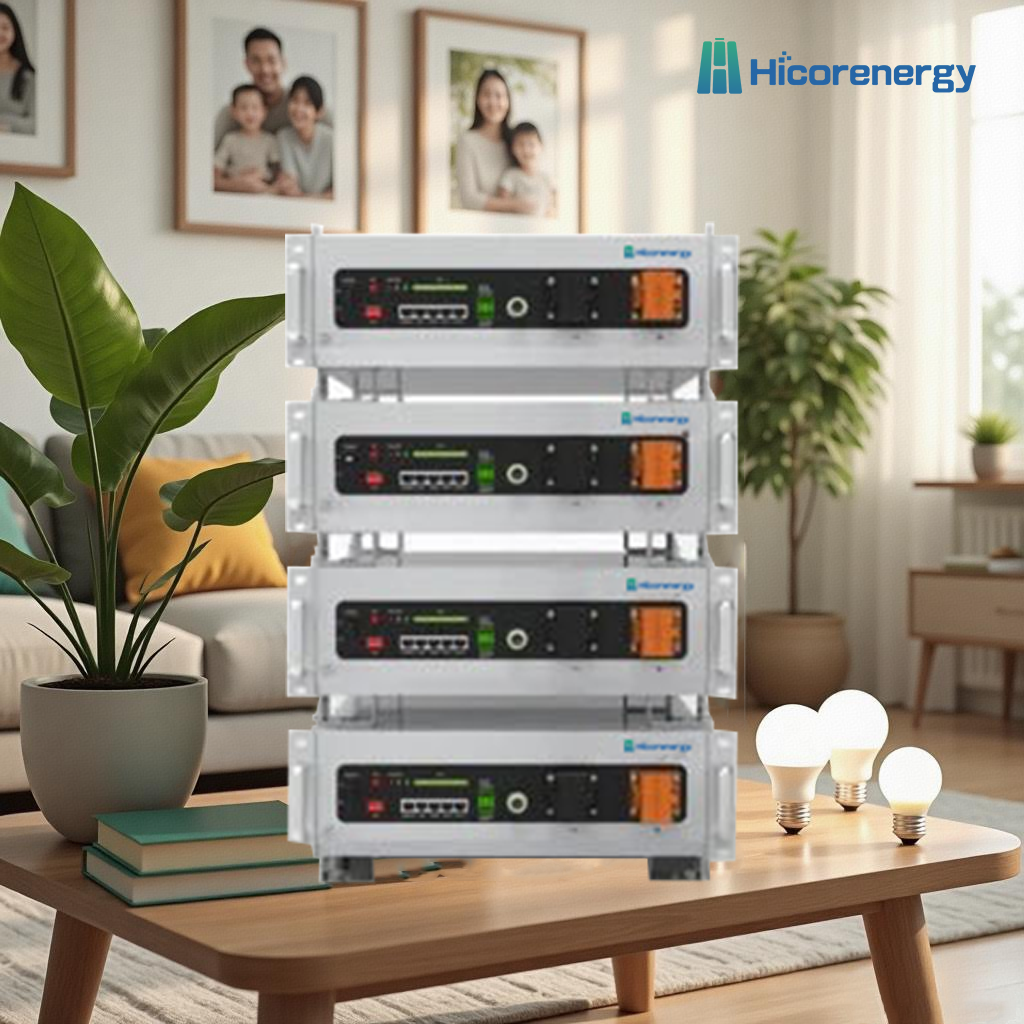Table of Contents
Introduction to Home Energy Storage Systems
Home energy storage allows homeowners to store electricity for later use, offering energy independence, cost savings, and backup power during outages. It supports renewable integration and enhances home energy management.

Lithium-ion Batteries: The Most Popular Choice for Home Energy Storage
Lithium-ion batteries have become the most widely adopted technology in the home energy storage market. Known for their long lifespan, high efficiency, and compact form, these batteries are ideal for homeowners looking to integrate solar power or reduce dependence on the grid. With over 6,000 charge-discharge cycles and a round-trip efficiency greater than 95%, lithium-ion systems deliver reliable long-term performance. Hicorenergy’s I-BOX 48100R and Si LV1 are examples of lithium iron phosphate (LiFePO₄) batteries that combine performance with safety, featuring advanced Battery Management Systems (BMS), remote monitoring capabilities, and compatibility with all major inverter brands. These systems are also scalable, enabling households to expand storage capacity as needed, and support flexible installation options such as wall-mount, rack-mount, or floor-standing.
Lead-Acid Batteries: A Cost-Effective Alternative
For homeowners seeking budget-friendly home energy storage, lead-acid batteries remain a viable option. While they offer a lower upfront cost compared to lithium-ion batteries, they come with trade-offs including shorter cycle life, lower energy efficiency, and a need for regular maintenance. Lead-acid batteries are heavier and larger, requiring more space and adequate ventilation to ensure safe operation. Despite these limitations, they are suitable for homes with moderate energy storage needs or for users who prioritize affordability over advanced features. These systems are often used as backup during power outages rather than for daily cycling. Over time, the total cost of ownership may increase due to shorter replacement cycles and reduced performance.
Emerging Energy Storage Technologies for Homes
The field of home energy storage is rapidly evolving, with emerging technologies offering promising alternatives to traditional batteries. Solid-state batteries, for example, replace liquid electrolytes with solid materials, increasing safety, energy density, and thermal stability. Flow batteries, another emerging technology, separate the storage of energy from power conversion, offering long-duration energy storage with minimal degradation over time. These systems can be particularly valuable for homes with larger energy loads or off-grid applications. Hybrid systems combining solar panels, batteries, and intelligent inverters are also gaining popularity, enabling advanced energy management through real-time monitoring and AI-driven optimization. While these technologies are still in the early stages of adoption, their continued development suggests a bright future for home energy storage solutions that are smarter, safer, and more sustainable.

Summary
Hicorenergy delivers safe, scalable, and high-performance home energy storage systems tailored to fit modern residential energy needs and lifestyle preferences.
Contact Us
Email: service@hicorenergy.com
WhatsApp: +86 181-0666-0961
-scaled.png)
